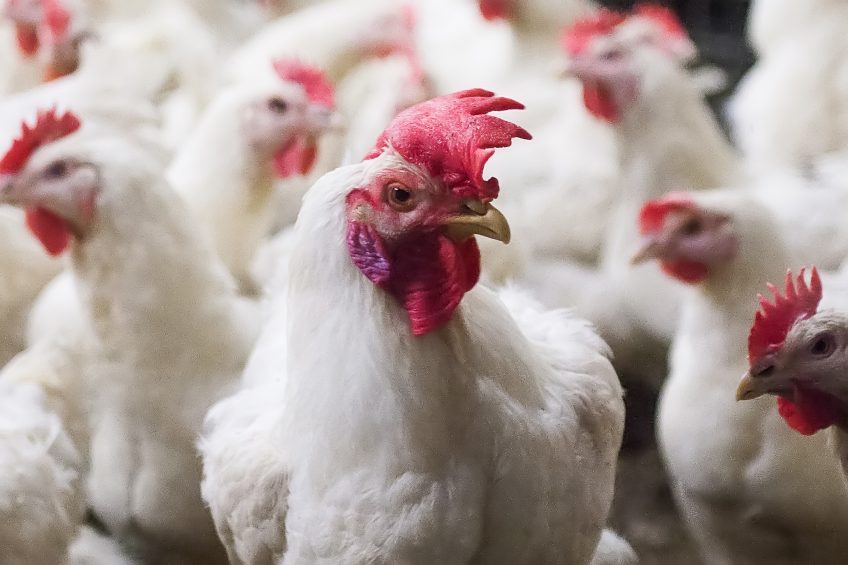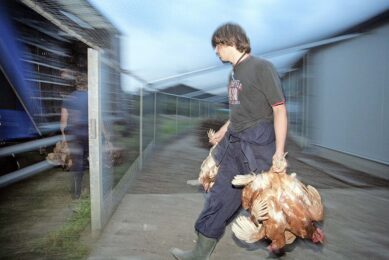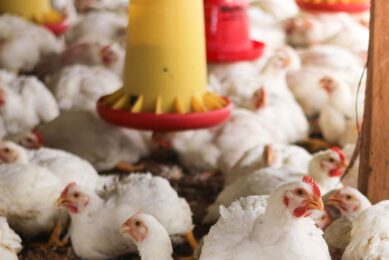New EC broiler report criticised for lack of welfare progress

European animal welfare groups have criticised a new European Commission report on broiler production, saying it lacks ambition for effective broiler production on the Continent.
The Eurogroup for Animals said the report, which it claimed had been delayed for 6 years, had failed to address how the welfare of broiler chickens had been improved as a result of the implementation of the Broiler Directive.
What is The Broiler Directive?
The Broiler Directive had promised to deliver higher welfare through the use of animal based indicators. These indicators should allow farmers and authorities to assess and adjust on-farm rearing conditions that impact welfare.
Indicators not used consistently
However, Eurogroup for Animals said the report failed to say anything on whether the only binding indicators on cumulative on-farm mortality and the voluntary indicator on prevalence and severity of footpad dermatitis have been used to improve animal welfare.
The main reason is that such indicators are not being used consistently across the Member States and that a common strategy to address the underlying problems on farm is missing.
Welfare group: Eurogroup for Animals
Reineke Hameleers, Eurogroup for Animals director, said: “These sentient animals live in such agony with total disrespect of any of their most basic needs that intellectual honesty requires “minimum protection” to be rethought in the light of current practice.
“Several other key welfare issues currently remain neglected such as the use of slower growing breeds, a decreased stocking density, improved environmental standards, more humane slaughter methods and proper third party auditing.
“And even for measures that are addressed in the Directive, implementation and enforcement is at best inconsistent, and at worst shockingly weak.”
Among some of the enforcement problems identified are:
- Less than 5% of all broilers in the EU belong to slower growing breeds associated with better animal welfare outcomes
- Up to a quarter of broilers are kept at stocking densities of up to 42kg/square metre
- Only a minority of countries have defined maximum gas concentrations and provided equipment to measure this parameter
- Few countries have published guidance to inspectors to assess if on-farm ventilation is sufficient
- Operators catching and loading birds prior to transport for slaughter are not required to have a certificate of competence
- Random farm inspections are generally focussed on the resources provided rather than the birds themselves.
European Commission response
The Commission said in its report that Member States were aware of the steps needed to implement monitoring systems for footpad dermatitis and two thirds of countries had established such systems.
It added that random inspections of farms was still an important part of any control system, in particular to check stocking densities and that management and housing and other resources were appropriate.
It concluded that “different maximum stocking densities have been applied in different Member States, and the possible negative effects of high stocking densities have been mitigated by applying higher requirements and monitoring using cumulative daily mortality rates as an indicator.”
More than 60% of broiler farms in Europe operate a stocking density of more than 33kg/square metre, deviating from the Directive’s base rule.
The Commission’s report added: “High mortality rates are often blamed on conditions at hatcheries and/or parent flocks but there are no known actions by authorities to address this suspicion. The proper assessment of the more technical requirements, such as ventilation which influence chickens’ welfare, is also a challenge for authorities.”
The Commission said it would continue to work with Member States to disseminate examples of god practice for controls and with Member States and industry on guidance on farm management.
Join 31,000+ subscribers
Subscribe to our newsletter to stay updated about all the need-to-know content in the poultry sector, three times a week. Beheer
Beheer








 WP Admin
WP Admin  Bewerk bericht
Bewerk bericht